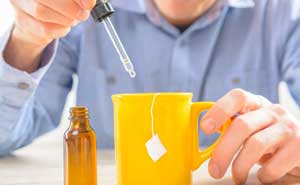
Fizzy sodas, light and fluffy yogurts, creamy puddings, a piping hot vanilla latte - pretty much anything can be made sugar-free these days. And now formulators have a variety of choices beyond the most common: saccharin, sucralose, and aspartame. According to the U.S. Food and Drug Administration (FDA), “six high-intensity sweeteners are FDA-approved as food additives in the United States: saccharin, aspartame, acesulfame potassium (Ace-K), sucralose, neotame, and advantame,” when used in moderation.
As seen in the FDA statement, artificial sweeteners are also called “high-intensity sweeteners,” because they are many times sweeter than regular white cane sugar, yet add virtually no calories to one’s diet and do not spike blood sugar levels. The Sugar and Sweetener Guide offers some charts on sweetener values, including the calories per gram, the sweetness relative to sugar and the glycemic index for each sweetener.
Artificial sweeteners are the fastest growing segment of the sweetener market. Growing health issues, such as diabetes and obesity, have led to a greater demand for low-calorie sweeteners. The market for high-intensity sweeteners is expected to reach nearly $1.9 billion in 2017, says Natural Products Insider.
The Safety of Artificial Sweeteners
With the variety of sweeteners, and increased scrutiny on the effects of artificial ingredients as a whole, many consumers question if it’s safe to consume food and beverage products that include them. According to FDA, and multiple scientific studies, including one by the American Cancer Society, it is.
In 2002, two U.S. citizens petitioned FDA, requesting a ban on the use of aspartame as a food additive, citing multiple adverse effects. In its 2014 response letter, FDA stated that the petition “contains no substantive scientific evidence demonstrating that aspartame's use presents a public health risk...the anecdotal accounts of adverse effects of aspartame cited in the citizen petition are not supported by scientific evidence.”
Also in 2014, the Journal of Nutrition published a study on 100,442 adult men and women, and found that daily consumption of artificially or sugar-sweetened carbonated beverages, or aspartame, is not associated with an increased risk of cancer (non-Hodgkin lymphoma, specifically). This study was affiliated with the Epidemiology Research Program of the American Cancer Society.
The National Cancer Institute, a U.S. governmental agency, agrees, stating that “these sweeteners have not provided clear evidence of an association with cancer in humans.” Studies in the 1970s linked saccharin to cancerous tumors in male rats, yet later studies revealed that those results applied only to rats; the ingredient did not produce the same results in humans.
Conversely, other studies are less conclusive. Some recent studies (again with mice) have indicated that daily consumption of diet (artificially sweetened) soda might lead to a higher risk for weight gain, as well as metabolic syndrome and Type 2 diabetes.
A recent 2016 study in Australia suggests that the brain essentially rewires after continued usage of the sweeteners, producing an increased appetite. Yet another study, however, points out that “it remains difficult to establish the strength of the association and the independence from other potentially confounding factors.” Many researchers agree more research is needed to prove a causal link.
Regardless of the consistency of findings, there is no doubt there will be continued demand for low-calorie options for the tasty treats people often cannot resist.
Going Natural
A handful of products have launched recently that make use of natural low-calorie sweeteners. ChocZero by Snapfit incorporates monk fruit and a slightly sweet vegetable fiber to try to avoid the “funky aftertaste” of some artificial sweeteners.
Brazilian candy manufacturer Riclan recently launched a “naturals” version of their best-selling product, Freegells cough drops, incorporating natural flavors and colors. They also have plans to develop a sugar-free gum marketed to children.
Share your experience
Have you changed product formulations to include sugar-free alternatives? Are you using any other natural alternatives like stevia or monk fruit? Do you have any tips for formulating with these products? Leave a comment below and share with the community.
Searching for the right artificial sweetener for your product?
Prospector has listings for low-calorie products from global suppliers. Find technical data, order samples and more now…
Further reading:
- Natural Products Insider: Global Sugar, Sweetener Market to Hit $97 Billion by 2017
- Regulations.gov: 2014 FDA response letter to citizen petition
- Journal of Nutrition: Study on Artificially and Sugar-Sweetened Carbonated Beverage Consumption
- FoodNavigator.com: FDA rejects calls for aspartame ban
- Cancer.gov (National Cancer Institute): Artificial Sweeteners Fact Sheet
- FDA.gov: High-Intensity Sweeteners
- ScienceDaily.com: Why artificial sweeteners can increase appetite
- Advances in Nutrition: Sweetened Beverages in Relation to Obesity Risk Study
- Harvard School of Public Health: Artificial Sweeteners
The views, opinions and technical analyses presented here are those of the author or advertiser, and are not necessarily those of ULProspector.com or UL Solutions. The appearance of this content in the UL Prospector Knowledge Center does not constitute an endorsement by UL Solutions or its affiliates.
All content is subject to copyright and may not be reproduced without prior authorization from UL Solutions or the content author.
The content has been made available for informational and educational purposes only. While the editors of this site may verify the accuracy of its content from time to time, we assume no responsibility for errors made by the author, editorial staff or any other contributor.
UL Solutions does not make any representations or warranties with respect to the accuracy, applicability, fitness or completeness of the content. UL Solutions does not warrant the performance, effectiveness or applicability of sites listed or linked to in any content.



Leave a Reply or Comment